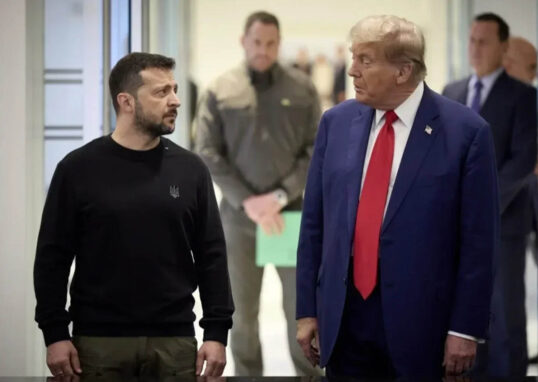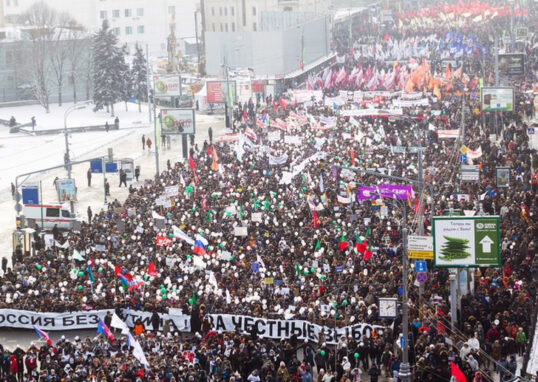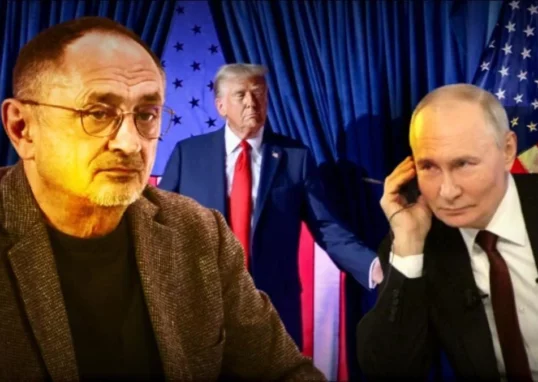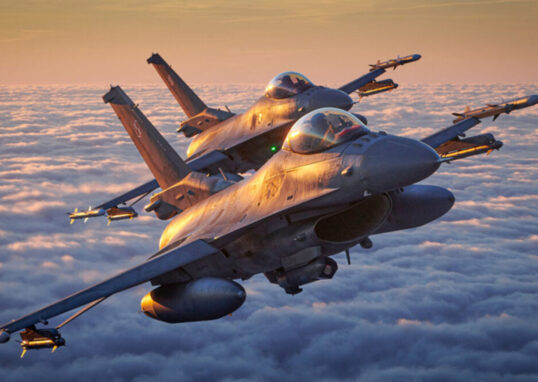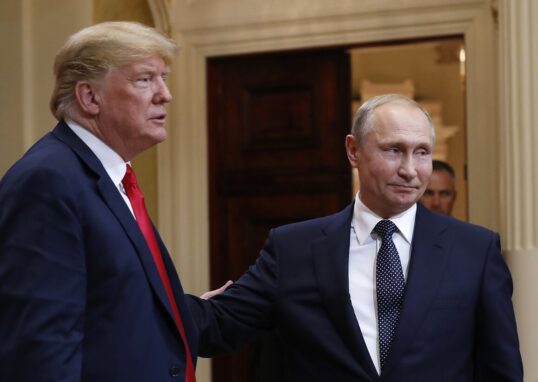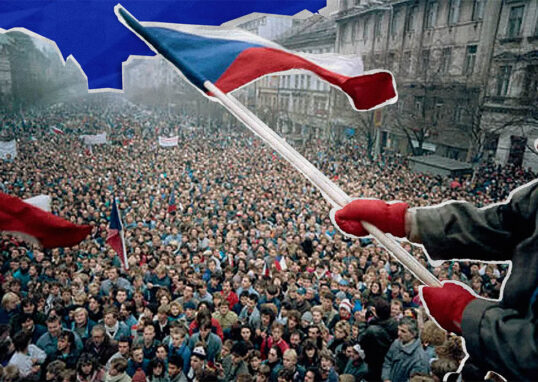When Russia annexed Crimea and invaded the Donbas in 2014, it was clear that it was only a matter of time before the issue of an independent Orthodox Church in Ukraine would once again be on the agenda.
And so it is… In April, the Ecumenical Patriarchate of Constantinople officially accepted the appeal to grant the Tomos of Autocephaly to the Orthodox Church in Ukraine, a document that would allow a significant part of Ukrainian Orthodox faithful and churches to quit the Moscow Patriarchate and become one of the legitimate Local (Autocephalous) Churches.
Previously, the Ecumenical Patriarchate was not very willing to make a clear statement on the future of an independent Orthodox Church in Ukraine. However, Patriarch Bartholomew has publicly confirmed that work on the Tomos is underway.
After the collapse of the Soviet Union, Orthodox parishes in Ukraine were divided into three groups. Initially, most of the parishes belonged to the Moscow Patriarchate; a few parishes joined the Kyiv Patriarchate led by Metropolitan Filaret, and the smallest group called itself the Ukrainian Autocephalous Church. Today, the number of faithful and parishes belonging to the Kyiv Patriarchate and supporters of autocephaly far outnumbers the number of pro-Moscow parishioners. Moscow has not recognized Metropolitan Filaret to this very day.
We are currently caught up in an active phase of negotiations and controversy. Will Patriarch Bartholomew receive the support of the other leaders of Local Churches – there are 15 of them – in order to decide on the creation of an autocephalous church in Ukraine even if Moscow is against it? Such a decision seemed virtually impossible before. Moreover, even among the Orthodox parishes in Ukraine there never used to be a strong movement toward autocephaly. But, the historical situation has changed. Everyone understands this, both in Kyiv and in Moscow, as well as at the headquarters of the other eastern churches.
Moscow argues that such a decision could lead to conflicts, a split in Orthodoxy and might even result in civil war in Ukraine. This is, of course, a gross exaggeration. The unity of the Ukrainian Orthodox Church with Moscow has already been severely damaged by the Kremlin’s policies after 2014. A Local Church in Ukraine would mean the end of this frozen situation, which has remained static after the collapse of the USSR.
Why should the European Union and the European countries pay more attention to this situation? Until 2014, the Moscow concept of the “Russkiy mir” (Russian world) was generally cultural and historic. But, when Russia invaded Ukraine, it became clear that Moscow was using the “Russian world” as a neo-imperial concept and just another tool for its hybrid war.
Unfortunately, the Moscow Patriarchate did not distance itself from this ideological change. Thus, another situation has arisen, whereby belonging to the “Moscow church” is a sign of adhering to the ideology of Moscow’s neo-imperial hegemony. This argument was the basis for a movement that has gained more and more momentum within Ukrainian parishes and among the episcopate. Even Metropolitan Onufriy, the current head of the Ukrainian Orthodox Church-Moscow Patriarchate, is said to have supported autocephaly as a historical mission in the early 1990s.
The appearance of an important canonical Orthodox Church in Eastern Europe, which would be focused on European development and integration, constitutes a very significant historic event. Several European countries have a dominant Orthodox Church. Some of them are already members of the European Union (Greece, Bulgaria, Romania); others (Serbia) are on their way. The creation of an independent Orthodox Church in Ukraine would place it among these European countries.
Moscow has the power and resources to exert pressure on the Synod of the Church of Greece, and also expects that Georgia, Bulgaria and Romania will not support the Ecumenical Patriarchate and Kyiv. According to the Ukrainian media, the Tomos has already been drafted, but not yet signed by Patriarch Bartholomew and members of the Synod of Constantinople. Metropolitan Ilarion – the right hand of Kirill, Patriarch of the Russian Orthodox Church – visited Greece in late June, and often meets with the leaders of the other Local Churches. In fact, he seeks to destroy the slowly-emerging alliance in favour of Ukrainian autocephaly.
Seen from a long-term historical perspective, it is clear that Moscow will not retain its ecclesiastical domination in Ukraine. As a matter of fact, it would be beneficial for Moscow to agree to Ukrainian autocephaly. In the future, canonical relations between the two countries would become simpler and equal to those of Moscow with the Serbian and Bulgarian Church.
Autocephaly would allow both churches to escape politics and remain “sister churches” exclusively in the Christian sense.
In this sense, if the Ecumenical Patriarchate now makes this historic decision on Ukrainian autocephaly, it will lay solid foundations for the future development of a true European Orthodox community.
Translated by: Christine Chraibi
Source: Newsader
Euromaidanpress. Waiting for Constantinople’s historical decision on Church autocephaly in Ukraine
